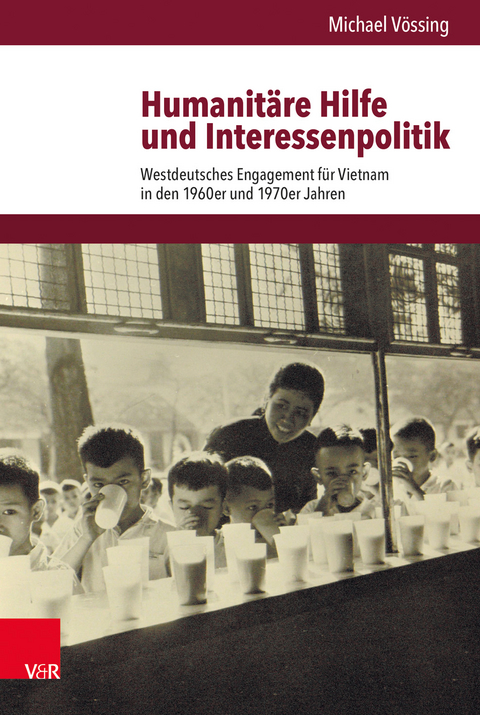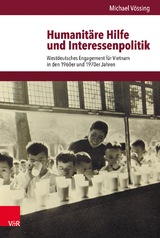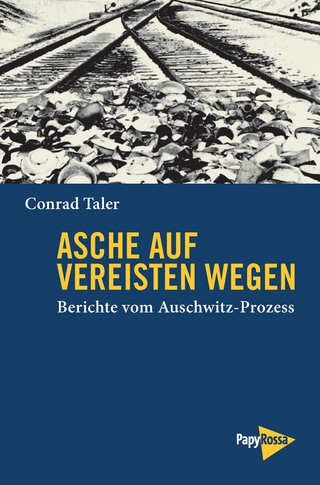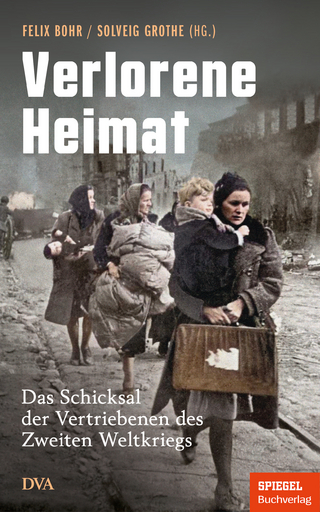Humanitäre Hilfe und Interessenpolitik
Westdeutsches Engagement für Vietnam in den 1960er und 1970er Jahren
Seiten
2018
Vandenhoeck & Ruprecht (Verlag)
978-3-525-30193-7 (ISBN)
Vandenhoeck & Ruprecht (Verlag)
978-3-525-30193-7 (ISBN)
Das Buch wertet neue Quellen zur humanitären Hilfe der Bundesrepublik während des Vietnamkrieges aus
Facing the suffering of civilians in North and South Vietnam and against the background of the global Cold War and of the social and cultural changes in West Germany, the Federal Republic of Germany gave important humanitarian aid to all parts of Vietnam between 1965 and 1973. On the basis of mostly unpublished sources, the present book analysis the complete humanitarian efforts provided by the West German Government, by the traditional welfare organizations (like the German Red Cross Society), by newly founded private aid agencies (like terre des hommes) and by the anti-war protest movement. The aid projects, for instance maintaining a hospital ship in Da Nang or constructing an hospital in the North Vietnamese Vinh Linh district, resulted from different interplays, both co-operations and confrontations, of the West German humanitarian actors.It is the central thesis of the present book that the analyzed forms of interactions to provide aid to Vietnam not only rendered possible one of the largest humanitarian engagements of the West German society but also initiated and institutionalized international humanitarian aid as a new political field of West German foreign relations.
Facing the suffering of civilians in North and South Vietnam and against the background of the global Cold War and of the social and cultural changes in West Germany, the Federal Republic of Germany gave important humanitarian aid to all parts of Vietnam between 1965 and 1973. On the basis of mostly unpublished sources, the present book analysis the complete humanitarian efforts provided by the West German Government, by the traditional welfare organizations (like the German Red Cross Society), by newly founded private aid agencies (like terre des hommes) and by the anti-war protest movement. The aid projects, for instance maintaining a hospital ship in Da Nang or constructing an hospital in the North Vietnamese Vinh Linh district, resulted from different interplays, both co-operations and confrontations, of the West German humanitarian actors.It is the central thesis of the present book that the analyzed forms of interactions to provide aid to Vietnam not only rendered possible one of the largest humanitarian engagements of the West German society but also initiated and institutionalized international humanitarian aid as a new political field of West German foreign relations.
Michael Vössing ist Historiker und derzeit Geschäftsführer der Professional School of Education Stuttgart-Ludwigsburg. Von 2008 bis 2012 war er Stipendiat der ZEIT-Stiftung Ebelin und Gerd Bucerius an der Universität Mannheim und von 2012 bis 2013 Stipendiat am Leibniz-Institut für Europäische Geschichte Mainz.
| Erscheinungsdatum | 31.08.2018 |
|---|---|
| Reihe/Serie | Veröffentlichungen des Instituts für Europäische Geschichte Mainz ; Band 251 |
| Zusatzinfo | mit 7 Diagrammen |
| Verlagsort | Göttingen |
| Sprache | deutsch |
| Maße | 160 x 237 mm |
| Gewicht | 1133 g |
| Themenwelt | Geschichte ► Allgemeine Geschichte ► Zeitgeschichte |
| Sozialwissenschaften ► Politik / Verwaltung | |
| Schlagworte | Bundesrepublik • Deutschland/Zeitgeschichte • Humanitäre Hilfe • Vietnamkrieg |
| ISBN-10 | 3-525-30193-6 / 3525301936 |
| ISBN-13 | 978-3-525-30193-7 / 9783525301937 |
| Zustand | Neuware |
| Informationen gemäß Produktsicherheitsverordnung (GPSR) | |
| Haben Sie eine Frage zum Produkt? |
Mehr entdecken
aus dem Bereich
aus dem Bereich
Berichte vom Auschwitz-Prozess
Buch | Softcover (2023)
Papyrossa Verlag
CHF 19,45
das Schicksal der Vertriebenen des Zweiten Weltkriegs
Buch | Hardcover (2024)
DVA (Verlag)
CHF 33,55
Wie ein niederländisch-jüdischer Unternehmer in Sachsen den Nazis die …
Buch | Hardcover (2024)
Dietz, J.H.W., Nachf. (Verlag)
CHF 36,40




